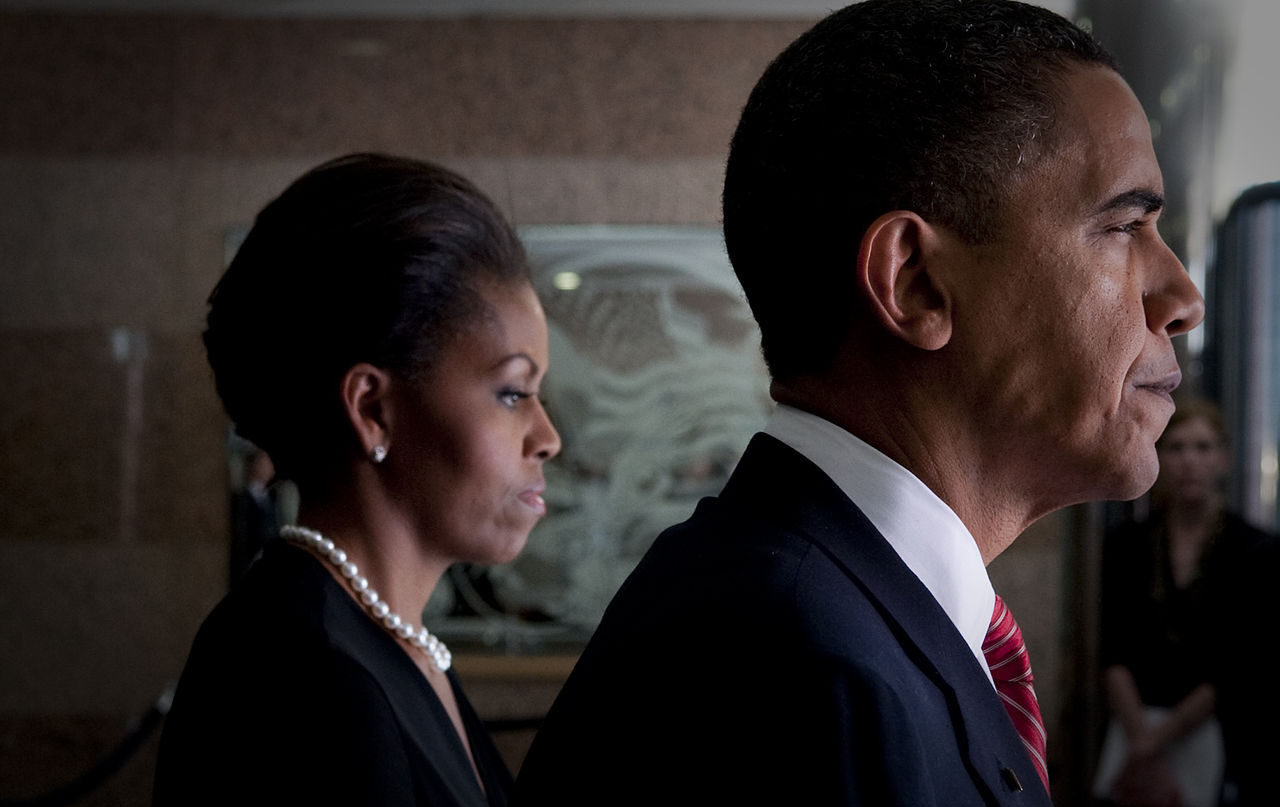
Prompt Images
The Atlantic published “My President Was Black,” a retrospective on Barack Obama’s Presidency written by the inimitable Ta-Nehisi Coates. Monica McNutt recently wrote a moving response to the piece.
I had to let “My President Was Black” marinate overnight. Ta-Nehisi Coates usually has that effect on me.
My eyes literally welled with tears as I pictured the BET Party at the White House. It will never ever be the same.
My expressions ranged from quizzical to enlightened as Coates traced together beautiful moments from the last two administrations. Back in 2008, I don’t know that I fully grasped the improbability of a black president. A man whose unique Hawaii-Kansas upbringing and relationship with his white grandparents brought a genuine and disarming spirit as he campaigned before White America.
As much as I didn’t want to have this thought, I still wondered if Coates was somehow suggesting “Mr. Bobo’s ice cream is colder,” because Obama was raised by a white mother. I may have been personally frustrated with Coates, who to has championed the black experience repeatedly in his works. I took a deep breath.
He isn’t suggesting blackness isn’t enough. He’s not taking a shot at you as a black woman, Monica.
These are simply the facts of Obama’s upbringing. But I smiled, comforted, as Barack described his relationship with blackness, finding it cool and worthy of embrace.
And I couldn’t help but smirk when Obama reflected on an early romance when he dated a white woman, but pulled back after realizing that if he pursued the relationship further, he would have to assimilate into her world.
My jaw dropped in awe as Coates detailed some of the racist and disrespectful jeers the former president had to endure, not just from the public but within government as well. Reading back through these offenses felt somewhat shocking, but sadly, I was not surprised. We are all products of our environment, whether those influences are positive or negative.
Which is also why the fantasy of entering a “post-racial society” is laughable at best. Electing one black president—with a legacy of 43 white men before him—does not sufficiently turn the tides. It’s just not that easy. If we were anywhere close to this so-called “post-racialism,” the people who were supposed to work with the president toward a more perfect union, at a minimum, surely would have shown respect rather than turning to racially-motivated monkey jokes.
The corners of my mouth turned down with sadness, as Coates discussed Obama’s missed connections with Black Lives Matter. For all that Obama represented for black people, we still questioned whether he was for black people. My friends and I grappled with this at various times over his 8-year tenure. While Obama held the highest office in the land, it seemed unrealistic to expect an executive order or some other mandate to somehow magically elevate black people.
When he reminded a national, televised audience, “If I had a son, he would look like Trayvon Martin,” some argued he went too far, while others argued he hadn’t gone far enough. And this is the quandary for being the first anything. No matter what actions he took, he could never escape the scrutiny of making those decisions “because he was black.” He could never just be president. He could only ever be a black president.
And acknowledging his position—both as a figurehead and between a rock and a hard place— I could almost see Barack having the genuine conversation with Coates at this point. Explaining that despite holding the seemingly most powerful office in the land, he is just one man.
“I think where I got frustrated at times was the belief that the president can do anything if he just decides he wants to do it. And that sort of lack of awareness on the part of an activist about the constraints of our political system and the constraints on this office, I think, sometimes would leave me to mutter under my breath. Very rarely did I lose it publicly. Usually I’d just smile.”
That smile, man, I’ll miss that smile.
My eyes again welled with tears, as Coates details following the presidential motorcade to Howard University, a historically black college in Washington, D.C. from which my mother is a graduate. A place I spent time during undergrad when I needed to get away from the whitewashed Georgetown campus on O street.
What a culminating moment. President Barack Obama charging the next class of graduates at an institution that represents black excellence with bettering their society. The walking example that dreams can come true.
For the founders of Howard, a university that has represented black excellence since 1867, a black president was probably an unfathomable dream. An achievement as lofty as their mission: the elimination of inequities related to race, color, social, economic and political circumstances. We still have so much work to do.
Every time I reread the title of Coates’ article, I pout like a child, hovering over the word was. I suppose I should be thankful. Thankful for the entire Obama Family. For Oprah, who Coates doesn’t mention, but who I firmly believe was a player in Obama gaining traction.
Thankful for Michelle, who was grace and dignity personified. And for those still skeptical about Barack back in 2008, including women in my family, she sealed the deal.
Do I think we’ll see another black president? I’ll probably have grandkids if we do. Coates offered a powerful comparison between Obama and our current president, to point out the urgency with which the country has been “reclaimed.”
“To secure the White House, Obama needed to be a Harvard-trained lawyer with a decade of political experience and an incredible gift for speaking to cross sections of the country; Donald Trump needed only money and white bluster.”
Even when you see it coming, the truth still hurts. I still pinch myself keeping up with the events of the current administration.
But at least there’s comfort in this. In the same way that dating a white woman couldn’t change him, Obama stayed true to his blackness throughout his presidency. Like most educated black folks understand wholeheartedly, he was able to code-switch to match any challenge or situation.
Obama remained cool. He dapped like an uncle. He sang “Let’s Stay Together” and “Amazing Grace.” The president felt like someone I knew. The kind of man who would greet my dad with, “What’s up Jumpshooter?” with a brilliant smile and a belly laugh, to which my dad would respond, “I can’t dance, man,” as they embraced. And Michelle and my mom would talk endlessly about education and how to reach the students whose parents don’t know how to advocate for them; she might even broach the topic of dating to me and caution me not to waste my time.
The Obamas were us in 2008, bearing our hope for change. They were us in 2012 as we marveled that this family still remained flawless and how their daughters grew so beautifully. Now, out of office, they stand beside us, hoping for the best for our great nation, and still embody the very best we have to offer.



